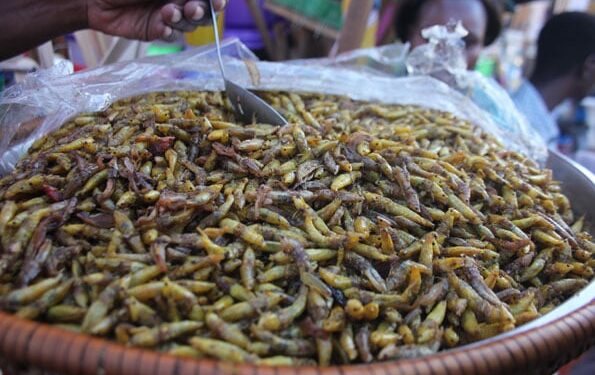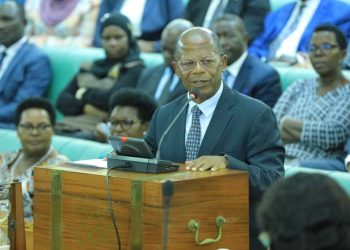In a whimsical turn of events, Uganda finds itself in a lighthearted discourse over the peculiar absence of grasshoppers this season.
Climate experts, however, attribute the missing delicacy to the ongoing heavy rains, turning the once-humorous chatter into a serious concern.
Social media is abuzz with playful suggestions, including humorous speculations that the government might have exported the sought-after insects to China.
Even President Museveni has joined the banter inquiring about their whereabouts in his recent communication.
On a more serious note, the Uganda National Meteorological Authority reveals that the persistent heavy rains have disrupted the usual lifecycle of grasshoppers.
Yusuf Nsubuga, a senior meteorologist, explains that the wet conditions hinder the hatching of grasshopper eggs laid underground in October.
This disruption results in a decreased population of the beloved insects.
Nsubuga remains hopeful, anticipating a return of grasshoppers as the rains subside.
However, the unusual weather patterns of this El Nino year have affected regions like Fort Portal and Kasese, renowned for generating large swarms of these highly nutritious insects.
Meanwhile, experts like Jeninah Karungi, an entomologist at Makerere University, attribute the decline in grasshopper numbers to human activities degrading their natural habitats.
The clearing of land for agriculture is diminishing the landscapes with diverse indigenous grasses that grasshoppers prefer.
In a more optimistic perspective, Prof Phillip Nyeko, another entomologist at Makerere, points to weather pattern changes as a factor in the delayed appearance of grasshoppers.
The dry August and late onset of rains have influenced the insects’ hatching timeline.
For those who rely on grasshopper sales, like Michael Mubiru, the absence poses a significant concern.
Mubiru, having invested over Shs500,000 in equipment for trapping the insects, fears potential losses if the grasshoppers do not return.
































































